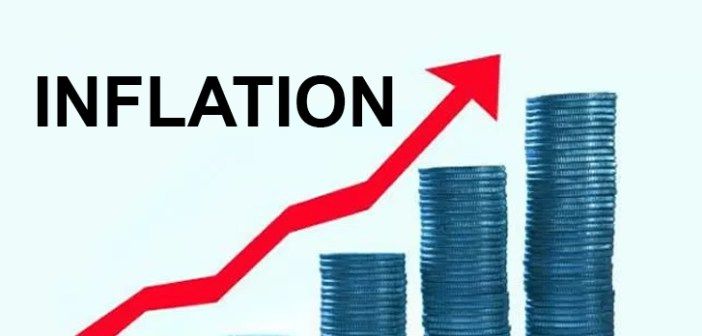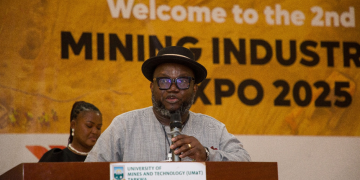Fuel Hikes From Israel-Iran War; Inflation Pushing Africa’s Long-Term Resilience – Experts
Experts say it is high time for Africa to look inward to blunt external vulnerabilities. Tensions between Israel and Iran are spiking oil prices and rattling African economies, with analysts warning of inflation surges and supply chain chaos while petrostates like Nigeria and Angola eye potential windfalls.
Seth Onyango, bird story agency
The Israel-Iran war drove oil prices up over 20% from recent lows, hitting African economies hard while offering potential windfalls for ‘petrostates’ like Nigeria and Angola.
Experts warned of inflation and supply chain shocks but also saw an upside for oil exporters, with projects like Nigeria’s Dangote Refinery expected to lift revenues, bolstering balance sheets.
Analysts further note the shifting dynamics present not just risks but a pivotal moment for African states to reframe their energy and economic strategies, leveraging current volatility to reduce future vulnerability.
While the conflict’s is hitting a continent already grappling with debt, some see opportunities for African oil exporters to capitalise on global demand.
Oil prices have surged about 20% since the conflict erupted, guaranteeing pain at the pump for millions of Africans.
“For those African countries that import oil,” said Nairobi-based analyst and CEO of Rich Management Aly-Khan Satchu, “the hit to inflation and currency pressure on their currencies is going to be severe.”
Satchu warned that the raging conflict in the Middle East will compound a decade of fiscal strain in African economies.
For most oil-exporting nations, he said the relief may be illusory.
“Most of the forward oil production has already been sold and prices locked in, and therefore any benefit from higher oil prices will be muted,” Satchu said.
Still, countries like Ghana, Côte d’Ivoire, and Senegal have begun building fiscal buffers and diversifying their energy mix, steps analysts say should be scaled across the continent.
<script src=”https://bird.africanofilter.org/hits/counter.js” id=”bird-counter” data-counter=”https://bird.africanofilter.org/hits/story/?id=2202&slug=israel-iran-war-risks-fuel-hikes-inflation-and-oil-booms-for-african-petrostates-experts” type=”text/javascript” async=”async”></script>
If Iran were to bottleneck flows — as it hinted on June 14 — prices could surge toward $100‑150 per barrel, fuelling inflation worldwide. Nearly 20% of global seaborne oil passes through a narrow channel – the Strait of Hormuz – separating Iran from Oman.
If it’s choked off for good, and prices breach US$100 per barrel, it would be a tipping point that could restructure African economies, trade flows, and political priorities.
Tewodros Sisay, a Partner at Deloitte and head of its Africa Economic Advisory Teams, frames it starkly: “Oil going above $100 per barrel could lead to a 6% GDP contraction in the first year for African countries.”
His concern isn’t limited to the economic math.
“We were talking about consumer spending recovery in 2025, but now we’re also being faced with geopolitical issues that seem far, but are actually very close to home.”
As of Wednesday, WTI crude oil futures fell over 1% to $73.7 per barrel after hitting $76 earlier, as President Trump hinted at dialogue with Iran, easing fears of immediate conflict.
Trump declined to confirm U.S. strike plans, noting Iran’s “very late” outreach for talks, softening earlier price spikes tied to potential disruptions in the Strait of Hormuz, which handles 30% of global seaborne oil. Yet, Iran’s warning of retaliation if the U.S. joined Israel’s actions kept risks high.
Besides oil prices, he argued the fallout from the war would also impact logistics, livelihoods, and leverage.
Sisay points to compounding supply chain disruptions, from Houthi raids in the Red Sea to longer haul detours via the Cape of Good Hope.
“Increased transportation costs will hit African consumers who are already struggling with debt burden and inflation,” he said. “This war will have the same impact as Ukraine did—maybe worse.”
The structural risks are bleeding through national budgets. For net importers like Kenya, Senegal, and Ethiopia, governments must choose to pass rising fuel costs to consumers and risk protests, or shoulder the burden via subsidies and balloon their deficits.
But whether they do it or not, Sisay explained, they still face significant issues.
Even petrostates like Nigeria and Angola are caught in a bind. “Whatever windfall they get from the price of oil increases…you will still have to subsidise the consumers, so you’ll still lose that money out to subsidy as well,” said the advisory veteran.
Yet, experts note that Algeria, with its sovereign wealth fund and recent focus on solar investments, offers an example of how oil revenues can be better leveraged for economic resilience.
In the neighbouring Morocco, renewable energy made up 17% of its electricity generation as of 2022, with the country targeting a bold increase to 52% by 2030, including 20% each from solar and wind, and 12% from hydro sources.
With food and transport eating up over 40% of household budgets in many African countries, the burden lands hardest on low-income families.
As inflation tightens its grip, that financial squeeze risks evolving into a broader sense of disenfranchisement—one that deepens the rift between citizens and governments.
But Satchu sees deeper motives in the global chessboard: “Yes. The move against Iran is ultimately an attempt to reshape the world order. It’s an attempt to cut off China from its source of oil and to kneecap BRICS. As such, Africa will be affected.”
To blunt the ongoing geopolitical shocks, both experts stressed that long-term resilience required internal reform. Sisay advocates for regional integration: “Regardless of whatever, who’s going to win, we need to do our own homework… improve our own macroeconomic situation as well as security.”
“Invest in our infrastructure, human capital… Market integration between… countries have to strengthen… We share our way from trading with each other.”
This includes accelerating the African Continental Free Trade Area (AfCFTA) to better absorb external shocks, including reducing reliance on volatile global supply chains through regional manufacturing and food corridors, which is non-negotiable now.
Meanwhile, Europe’s urgent need to diversify energy sources post-Ukraine war is primed to accelerate interest in African projects, particularly in green energy solutions.
Namibia’s $10 billion Hyphen green hydrogen venture, backed by German and Dutch firms, fast-tracked feasibility studies. Portugal signed an MOU with Angola to develop the 1.5GW Capanda hydro-solar hybrid complex.
As war rages on in the Middle East, experts say Africa’s resilience will depend on how swiftly it adjusts to global disruption—through clear economic policy, deeper diversification, and a sharper play for energy relevance.
bird story agency








